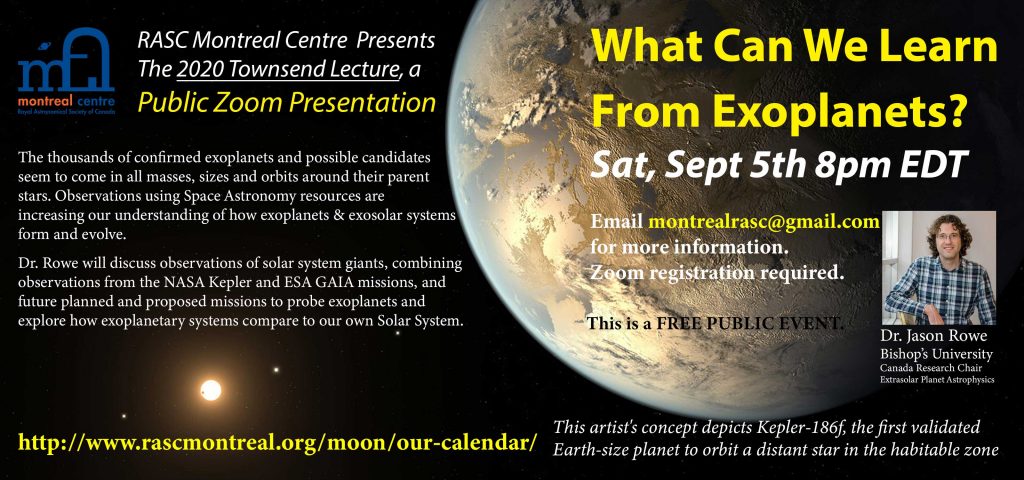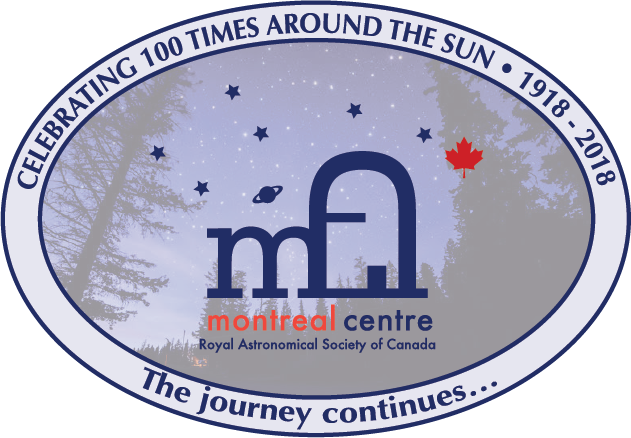The Royal Astronomical Society of Canada (RASC) Montreal Centre invites you to this year’s Annual Townsend Lecture, September 5th 2020 at 8pm EDT on Zoom. This year’s keynote speaker is Dr. Jason Rowe from Bishop’s University, who will speak to us about the use of Space Astronomy resources to better understand Exoplanet Astrophysics. Avid readers of SkyNews may recall that the RASC Remote Telescope project provided students a chance to observe exoplanet transit(s) last Fall, including some of our very own RASC Montreal Centre and John Abbott College students whose work was published in the Mar/Apr edition of SkyNews. With more future opportunities for Citizen Science and research at many Quebec universities, we hope you will join us to learn more about this fascinating field of study and the Space telescopes used to observe exosolar systems.. The Zoom presentation requires pre-registration, with the link and a full abstract below, and an event poster is attached to this email. Please share this event with other Space Enthusiasts.
You are invited to a Zoom webinar.
When: Sep 5, 2020 08:00 PM Eastern Time (US and Canada)
Topic: Montreal Centre – 2020 Townsend Public Lecture
Register in advance for this webinar:
https://us02web.zoom.us/webinar/register/WN_XfF6q2-pQRK3zrA9Z1h7jA
After registering, you will receive a confirmation email containing information about joining the webinar.
Abstract:
The thousands of confirmed exoplanets and possible candidates seem to come in all masses, sizes and orbits around their parent stars. These observations are increasing our understanding of how exoplanets and exosolar systems form and evolve. Dr. Rowe will discuss using Space Astronomy resources in the field of exoplanet astrophysics, from using observations of solar system giants to test planet formation theories to combining observations from the NASA Kepler and ESA GAIA missions to map out the architectures of exosolar systems. Future planned and proposed missions (JWST, CASTOR and Canadian micro-satellites) aim to probe the physics underlying differences between potential classes of exoplanets — so called Earth-like, super-Earth, mini-Neptune exoplanets and explore how exoplanetary systems compare to our own Solar System.
We look forward to your continued support and participation in our in-person Outreach events once this current health situation passes. We encourage everyone to follow the recommendations of our Public Health agencies, and wish you clear skies and good health.


